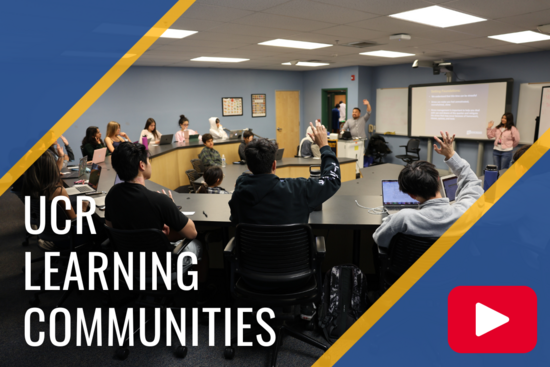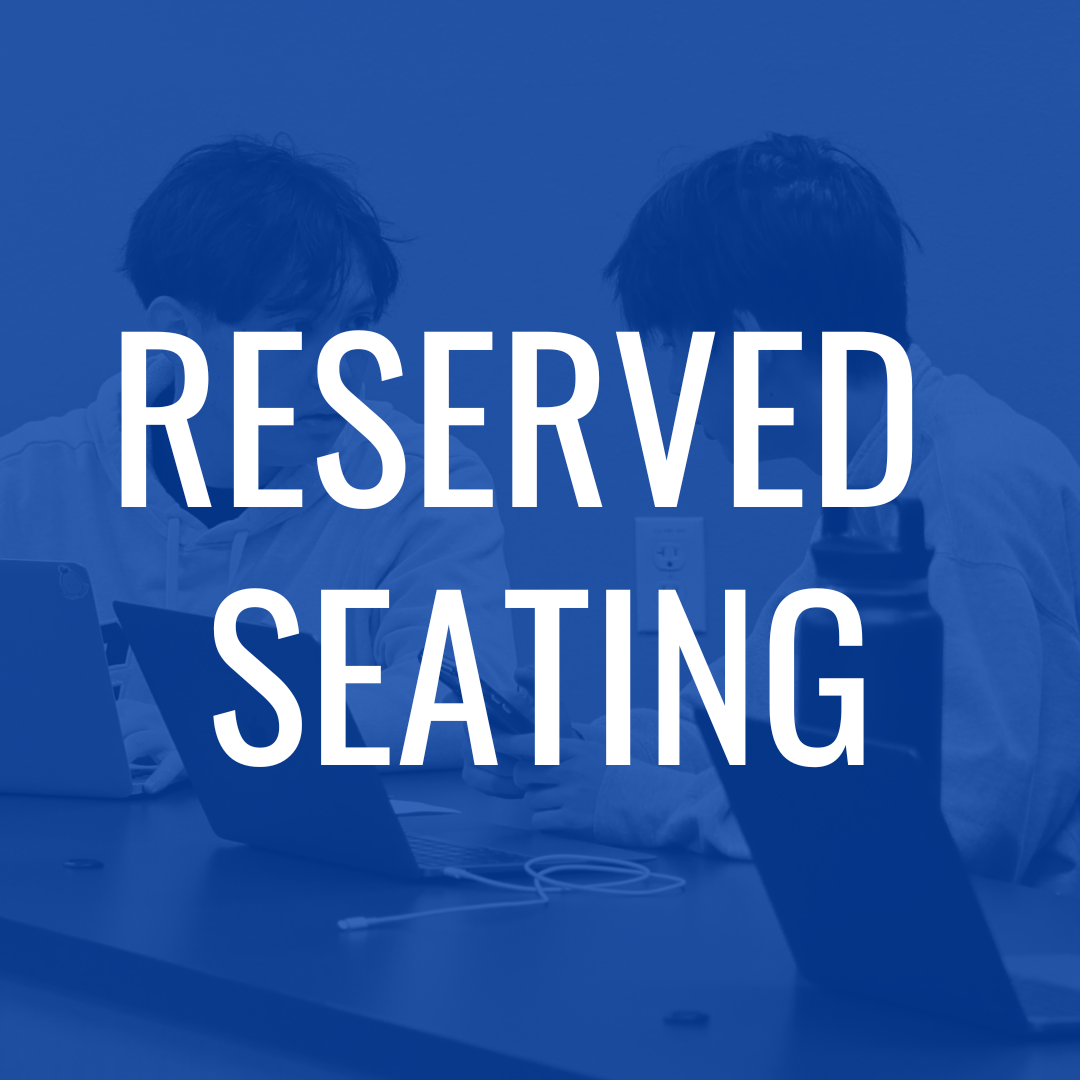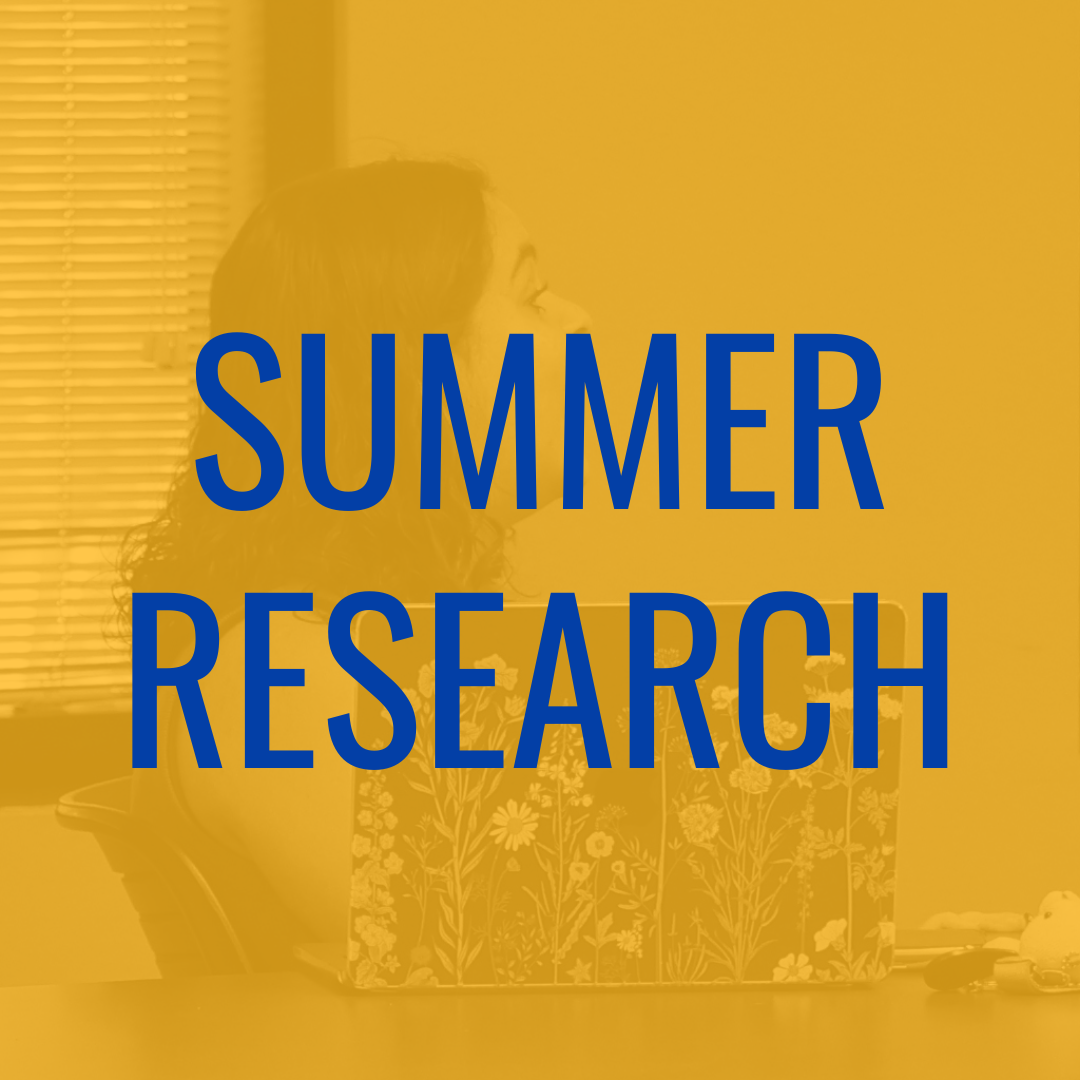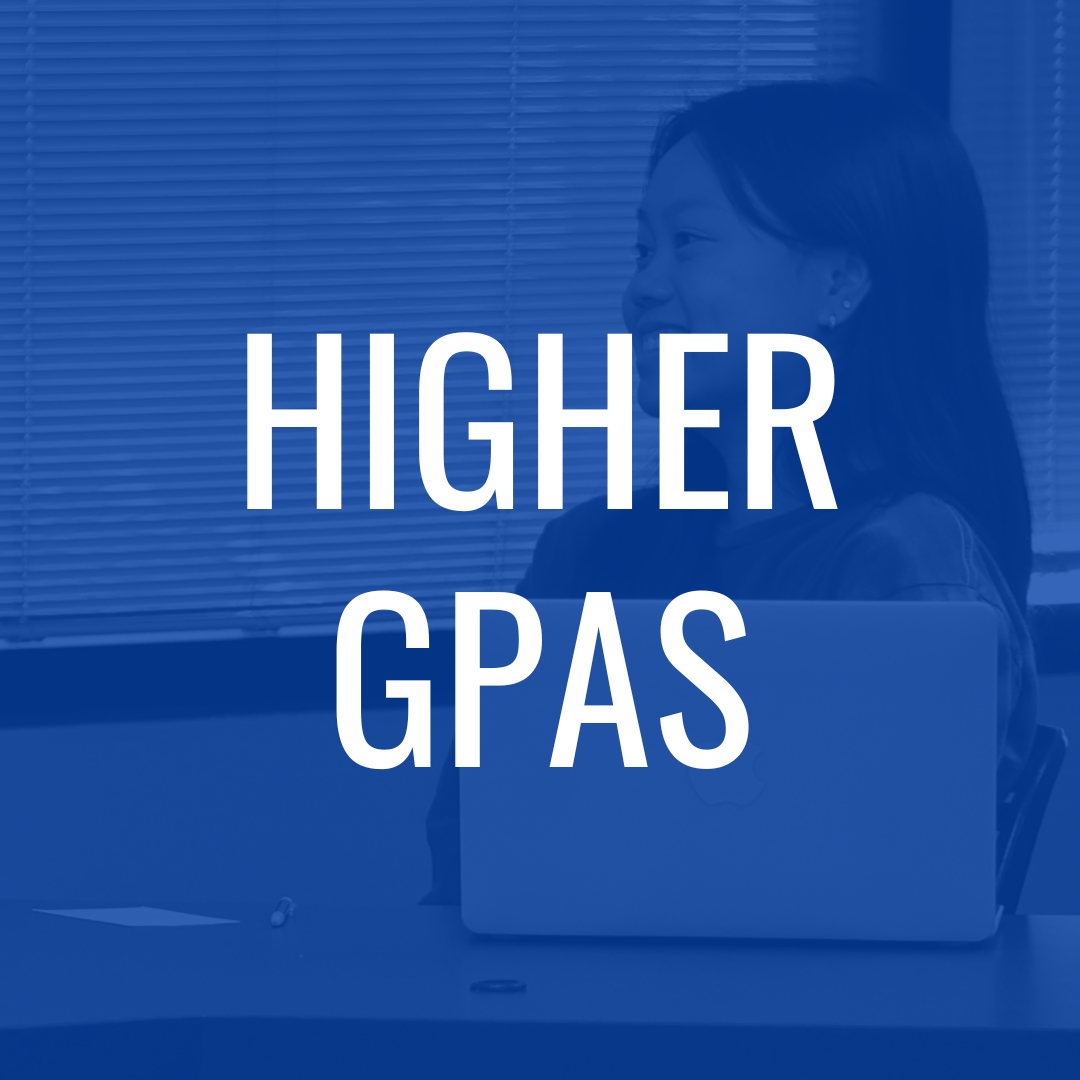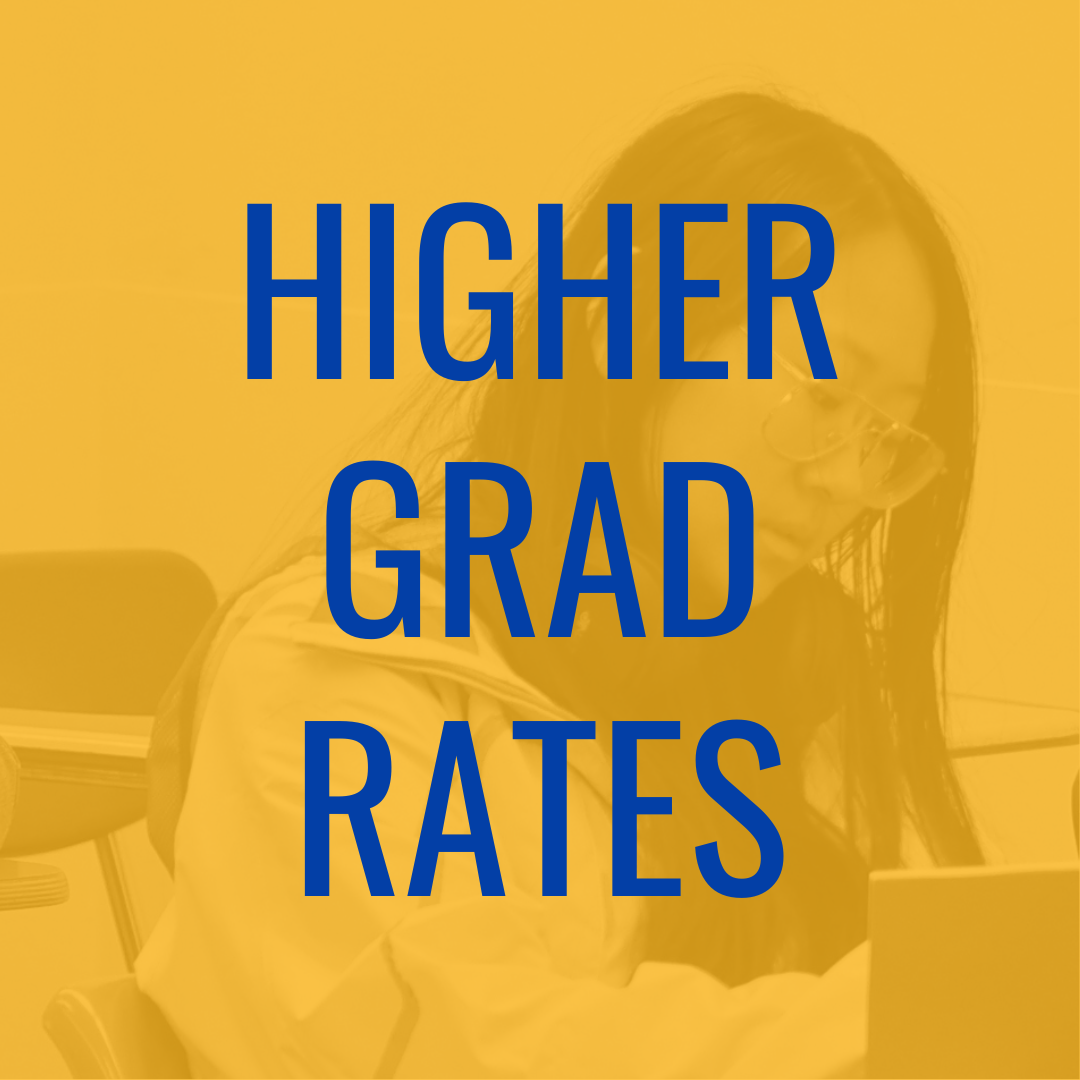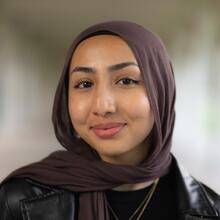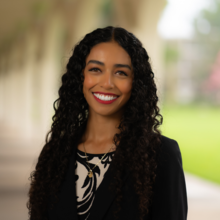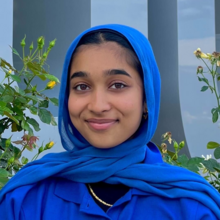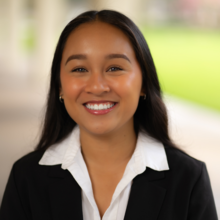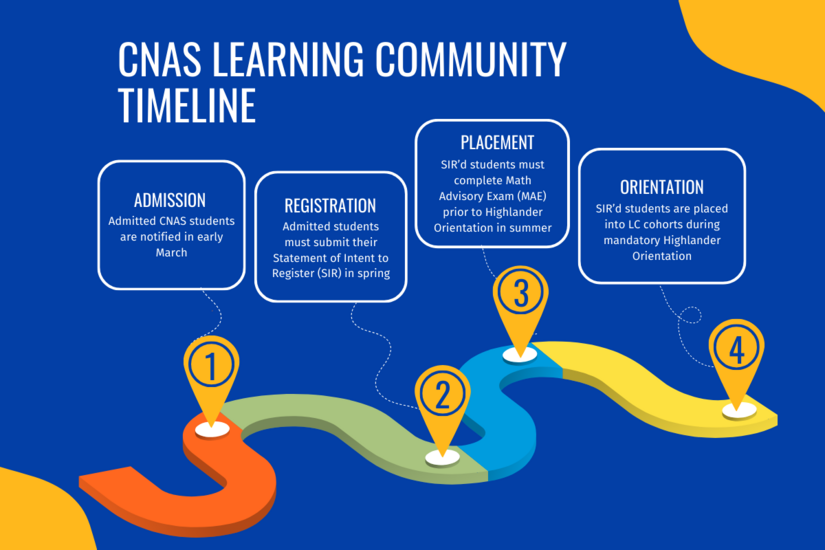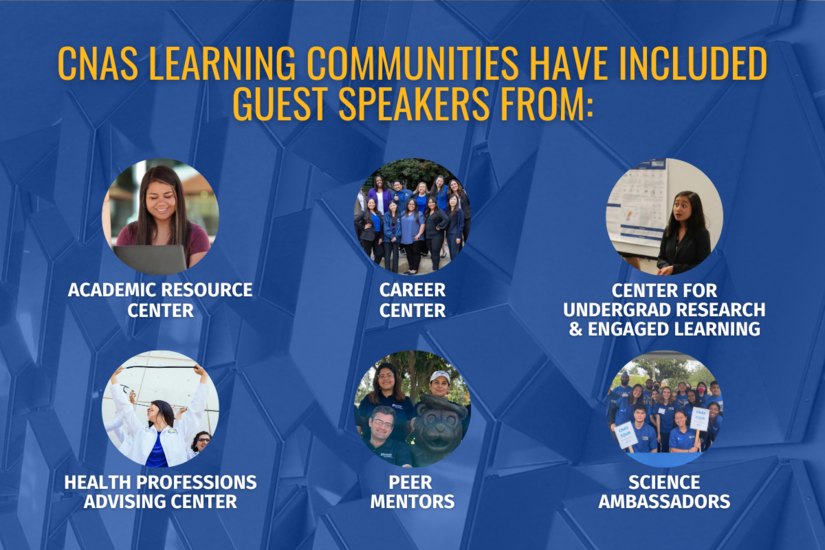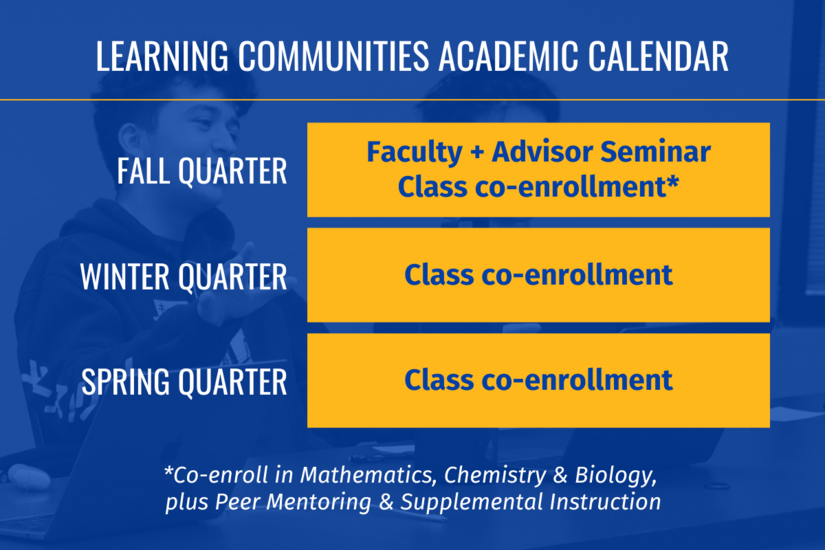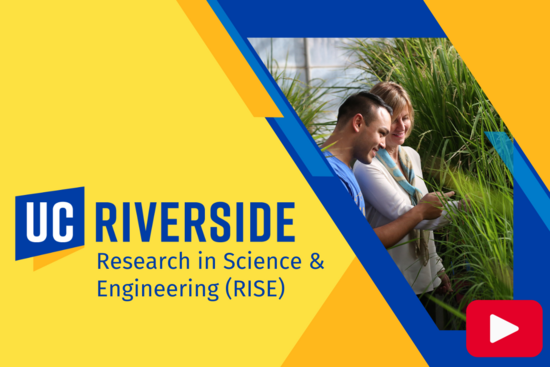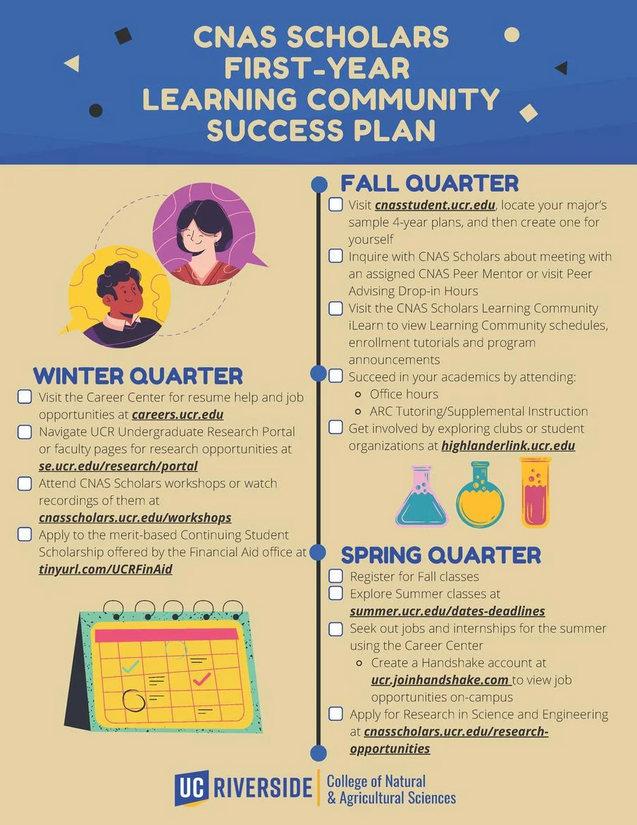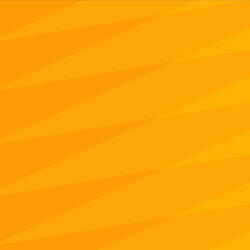Welcome to the CNAS Learning Communities!
A CNAS Learning Community (LC) is a year-long program designed to promote academic success, help new first-year students transition to college, and to give them the tools they need to thrive. The Learning Communities feature cohorts of like-minded individuals who develop friendships and use each other as resources and support systems.
Learning Communities help students develop a sense of community, belonging, and identify, and actively contribute to their persistence and success. Each CNAS Learning Community cohort is comprised of up to 24 first-year students with similar majors and academic interests, who navigate their first year of college together, and take their math and science courses together throughout their entire first-year at UC Riverside. Our program reserves these courses for our participants, setting them on the right track to graduate in 4 years.
In addition to offering incoming CNAS students guaranteed classes, CNAS Learning Communities also provide a built-in support network for a student's entire first year at UC Riverside alongside their major and breadth requirement courses. These required seminars familiarize students with the tools they need to succeed, and normalize the use of on-campus resources. These seminars also place an emphasis on student well-bring and connecting students to Health, Well-being and Safety (HWS) resources.
The CNAS Learning Community is a tool the university has developed to help new students create successful environments for themselves. During the 10 week fall courses, students develop their confidence, hone in on what they want to get out of the university experience, and have identified areas of academic interest and research opportunities. Learning Community cohorts create a deep sense of community that helps students develop lifelong friendships and support systems.
CNAS Learning Community cohorts provide: an opportunity to connect meaningfully professors at an early stage, a chance to learn more about UC Riverside's resources, a chance to make friends, form study groups, participate in campus activities, and an opportunity to explore potential career opportunities!
The CNAS Learning Community Advantage
How CNAS Learning Communities Work...
Placement
CNAS Learning Community cohorts are formed based on academic discipline and math placement. Similar placements are put together into similar Learning Communities. It is extremely important that newly-enrolled students take the UC Riverside Math Advisory Exam (MAE) before their scheduled Highlander Orientation date to facilitate placement in their cohort. During Highlander Orientation, students will accept their CNAS Learning Community block during registration and add additional courses as needed.
"Students in Learning Communities love the tight bonds they have created with their peers, and they feel they have a strong support network to motivate them."
Brett McFarlane
Director, CNAS Undergraduate Academic Advising Center
Freshman Advising Seminar (NASC091, NASC093 or NASC094)
During Fall Quarter, each student participates in a Freshman Advising Seminar (FAS). The FAS is focused on navigating the complexity of the university, plus the key resources students need at certain times. FAS students learn how to work in small groups and teams, developing trust and complementing their strengths with those of their fellow students. The deep connections forged during the FAS help carry students through their most challenging years at the university.
The first component of the seminar is led by an esteemed CNAS faculty member, and enables students to explore potential career options by learning about an engaging area of scientific research from an expert in that field. Faculty instructors focus on introducing students to UC Riverside's academic culture and student expectations, and providing students with information about on-campus research and what to expect within their academic disciplines. Faculty instructors often invite guest speakers from Study Abroad, the Pre-Professional Advising Center (PPAC) and the California Teach-Science & Math Initiative (CalTeach-SMI), to name a few.
The second portion of the seminar is led by a Student Academic Advisor and covers important topics pertaining to the college transition, including study skills, information about UC Riverside resources and other educational enrichment opportunities available to students. The course will introduce students to academic values and expectations, academic and career planning, and give them an opportunity to select a faculty mentor and get to know a CNAS staff member or CNAS peer. The course will teach students about impression management, how to network, and how to be a well-rounded student. The course also focuses on getting involved on campus, Career Services, and how to register for courses.
Seminars are focused on building community within the classroom through icebreakers, check-in questions, community-building activities, pairing & sharing assignments and general reflection. The course allows students to reflect on their challenges and goals while getting the help they need.
"The small setting of the CNAS Learning Communities has a powerful return in terms of confidence, knowledge, and developing university connections."
Noel Salunga
Assistant Director of Student Success
Supplemental Instruction (SI)
Supplemental Instruction (SI) provides students with course-specific academic support through informal and interactive sessions facilitated by upper-division CNAS students. These SI Leaders are students who have have achieved top grades in that subject, and work closely with the professor to develop the material presented in the SI sessions.
CNAS Peer Mentors
Students in a CNAS Learning Community have the opportunity to work with an experienced CNAS Peer Mentor, who can offer tips and tricks on how to be a successful student, get involved in research, and navigate the first year of college. Peer mentors are also available to help students get involved in student organizations, campus programs, and other developmental opportunities pertaining to STEM.
Each Peer Mentor is a CNAS student who has successfully completed the CNAS Learning Community program. They are all involved in a diverse array of campus programs, student organizations, community groups, and research projects. They have trained to be a source of guidance who can help students find solutions to their needs and make the most of their first-year by assisting with facilitating NASC093 in the fall, presenting at quarterly workshops, and meeting with first-year students one-on-one.
Research in Science & Engineering (RISE)
The Research In Science and Engineering (RISE) program is a 10-week summer research program designed for rising sophomores, juniors, incoming transfers, and seniors which takes place from June through September.
Participants work under the supervision of a faculty mentor on a cutting-edge research project. The program features faculty mentoring, professional development opportunities, immersive experience in the UCR science community, and an undergraduate symposium. Students will complete any relevant laboratory safety training at the beginning of the program.
Through support from generous donors and institutional financial commitments to undergraduate research, the College of Natural & Agricultural Sciences pays CNAS undergraduate students in the Learning Communities CNAS Scholars program (continuing students, CNAS Scholars) and the Summer Bridge to Research program (incoming transfer students, STEM Pathways Program [STEM]) a $5,000 stipend for the 10-week program.
"The CNAS Learning Communities are amazing and beneficial! We want to see student succeed...we want them to reach their full potential."
Maria Gonzalez
CNAS Scholars Assistant Coordinator
Frequently-Asked Questions
-
How do I join a CNAS Learning Community cohort?
All CNAS students will be placed into their Learning Community cohort during Highlander Orientation. Honors students will be placed in the Honors Learning Community.
-
What are the CNAS Learning Community requirements?
Students can only join a CNAS Learning Community during Highlander Orientation over the Summer; students cannot join during the academic year. Students must take all courses assigned to them by the Learning Community and cannot alter their schedules. Students who drop from the Learning Community program forfeit their reserved course seating, as well as access to the program's research, employment, and sophomore program opportunities. Additional requirements will be reviewed at Highlander Orientation.
-
How is a CNAS Learning Community different from a UCR Living/Learning Community?
CNAS Learning Community cohort members are generally not housed together like a living/learning community. Instead, students will meet twice a week in NASC093, which focuses on guiding first-year students through their transition from high school to college.
-
How are CNAS Learning Communities typically structured?
Our first-year learning communities compose the flagship program for CNAS Scholars. This year-long program is designed to promote academic success and retention for incoming CNAS students. Each learning community is comprised of up to 24 students grouped by major and math placement. As part of our program each community is given reserved seating in their science and math courses, and will take these courses together throughout their first year. Participating students receive additional support to aid in their success in CNAS's rigorous science and math courses. Specifically, Supplemental Instruction (SI) and the CNAS First-Year Advising Seminar (NASC092 or NASC093). At completion of our program, students will have the opportunity to apply for a paid research position with a UCR CNAS faculty member for Summer.
-
How do I accept my CNAS Learning Community block?
How To Accept Your CNAS Learning Community Block
Note: This information is intended for enrolled students only.
-
How do I get information on my CNAS Learning Community once I am enrolled?
You will receive regular email updates about your CNAS LC. You should be in the habit of checking your UC Riverside email at least one a week as it is the official form of communications for campus departments. Be sure to check your email filters and junk mail to make sure you are getting emails from campus.
-
For which classes will I receive Supplemental Instruction (SI) as part of my CNAS Learning Community?
Your SI session will appear on your class schedule each term (as CHEM, MATH or BIOL, as appropriate). The designation of which classes get SI is predetermined and cannot be changed. However, you are always welcome to attend additional SI for other courses. These SI sessions are classes designed to support you in what is typically the hardest class of your group that quarter. Please keep in mind that SI sessions do not meet during Week 0 of class (i.e. Thursday and Friday of the first week of Fall Quarter). Attendance at all SI and other CNAS LC course offerings is mandatory.
-
What is the RISE program? Do I need to complete the CNAS Learning Community to be considered?
Upon completion of their CNAS Learning Community, students may apply to conduct research under faculty guidance in a full-time, 10-week summer program. This program includes a $5,000 stipend, professional development opportunities, graduate school preparation, and research skills enhancement. Learn more online at rise.ucr.edu.
-
How can I enjoy a successful first year at CNAS?

